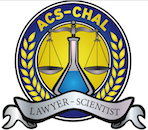Public Intoxication
One of the most commonly inquired questions I encounter is how one should handle a Public Intoxication charge. A Public Intoxication charge can be defined as a "Class C" misdemeanor, which technically according to the law, has the same range of punishment as a simple traffic ticket. However, the lasting ramifications and potential for future harm is much greater than most people realize.
It has been my experience that police officers have the most range in discretion when charging people with a Public Intoxication charge. The definition for the offense of Public Intoxication under Section 49.02 of the Texas Penal Code is whether a person appears in a public place while intoxicated to the degree that the person may endanger themselves or another. Simply put, you can be charged with "PI" and possibly convicted if you are "a danger to yourself or others in a public place."
I am of the opinion that this is a very ambiguous definition, and it is for this reason why I believe police officers have virtually universal authority to take someone in for "PI" if they believe they have had anything to drink.Countless times I have seen situations where an accused is charged with "PI" where it would seem ludicrous to classify the facts of their case with the definition above.
It baffles me how a police officer would make the determination to make an arrest based on the situation which sometimes occurs on the night in question. I am of the belief, however, that officers DO NOT exercise as much caution and concern when charging people with "PI" mainly because it is a Class C misdemeanor, which means that the offense is far less serious than most other criminal offenses. Therefore, if the officer makes a bad decision in making the arrest, his work is far less scrutinized by supervisors, judges, prosecutors, and the general public. Most people simply pay the fine and move on when faced with this charge, either for financial reasons or in the interest of time. Obviously the same type of mistake on behalf of the police officer would be not tolerated and would be evaluated far more closely if it were for a more serious offense. A perfect example would be the recent TCBY yogurt murder case in Travis County, and the questionable tactics surrounding how the state handled the arrest, investigation, and prosecution of the possible suspects.
I think there are situations where an officer makes an arrest for "PI" when he simply has no other alternative, and simply wants to make an arrest for some reason. Moreover, I think on occasion an officer will make a "PI" arrest to place the individual in the "drunk tank" to sober up. In these cases, it is not a question of whether the individual was intoxicated, but rather was the individual really a "danger to themselves or others in a public place?" This aspect of the definition is the most ambiguous, and leaves the most open for interpretation. I have seen individuals accused of "PI" where they are literally on their own property, in their own yard. Obviously in my opinion it seems absurd to argue that this person is in a "public" place.
Many times the prosecutors for these charges will simply offer deferred adjudication, in hopes that the defendant will accept this and go away. While it is true that there will be no final conviction with deferred adjudication, it is also true that if an arrest is made, then this arrest will remain on the accused records if, and only if, they choose to get it expunged and/or sealed (a different issue altogether) in the future. Even such, most of the time if the individual is arrested in the future for ANY type of charge, the state will usually be able to see that there was an arrest for "PI." It seems to me that this situation is the most problematic.
Countless times when evaluating a case the criminal record of the accused is closely examined and reviewed. While a "PI" charge is obviously less severe than most others, it is still always a potential for concern. An example for how important this possibly could be is demonstrated with the Williamson County Pre-Trial Intervention (PTI) Program. "PTI" is a wonderful program that Williamson County offers to first-time DWI offenders. While the program has a list of requirements a person must follow for successful completion, it allows a person to get a one-time "get out of jail free card." I tell all my clients to at least attempt to get in "PTI" if they are candidate, because it is the absolute best resolution to a case, aside from a jury acquittal.
One of the strictest requirements, however, for "PTI" is that the person not have been arrested for anything more serious than a traffic ticket. Occasionally I will encounter an individual that is not a candidate for "PTI" because of some "PI" arrest that was made many years ago. At times they usually try to explain the situation, and convey that the charge was a mistake. At this point, the situation of the arrest which occurred some many years ago does not matter in the least, and the accused will never again be able to explain the factors regarding the false allegations. Most of the time they receive deferred adjudication as their sentence. Despite all of these factors, this "PI" arrest has now precluded this individual for obtaining acceptance into this very productive and selective program. This is one example of many how a simple “PI” arrest can have lasting effects on the future of someone’s life.
It is always best to hire an attorney if charged with any Class C misdemeanor, other than a routine traffic ticket. Most individuals represent themselves in these proceedings, and usually get talked into resolving their case in a similar disposition. I am of the opinion that if you do DISAGREE with the charge, then an alternative is always to present this case to a jury. The definition for "PI" is outlined previously. It does not take a lawyer to analyze whether someone is guilty of this rather vague description of the law. If an accused disagrees with any charge brought against them, then an alternative should ALWAYS be to set the case for a jury trial, even in Class C misdemeanors, however trivial they may seem.
A public case recently in the Austin news was how current defense attorney, former Travis County District Attorney candidate, and present judicial candidate Mindy Montford was arrested for "PI." Ms. Montford very much disagreed with the arrest decision, and eventually the charges were dismissed. Ms. Montford then filed a formal complaint because of her outrage with how the situation was handled, citing damage to her reputation as the result of the erroneous charge.






















